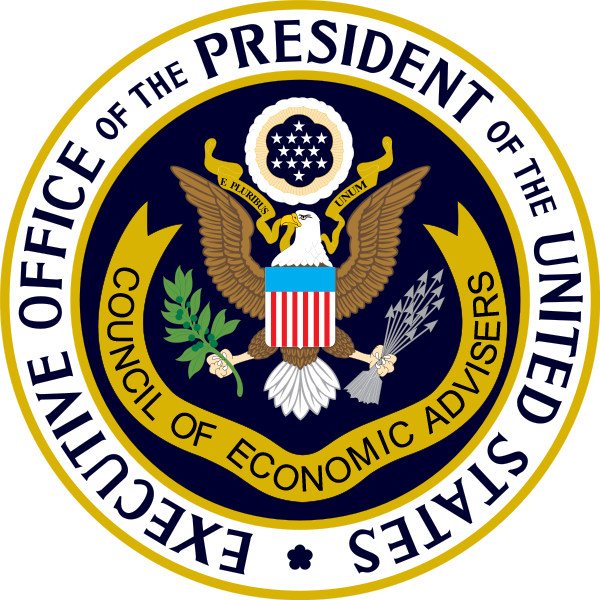After all, an overvalued dollar gives us the ability to buy foreign goods at lower prices. And the existing volume of exports brings more yen and euros than they would if the dollar were more competitive.

About Martin Feldstein
Martin Stuart Feldstein was an American economist. He was the George F. Baker Professor of Economics at Harvard University and the president emeritus of the National Bureau of Economic Research (NBER).
Tags
More quotes from Martin Feldstein
My theme this evening is that America needs a competitive dollar.
American economist (1939-2019)
To finance this trade deficit, the U.S. has to borrow from the rest of the world or sell American assets like stocks, businesses, and real estate to the rest of the world.
American economist (1939-2019)
The good news is that a competitive dollar in the global market and a strong dollar at home are compatible in both the long run and during the transition to a more competitive dollar.
American economist (1939-2019)
The more competitive value of the dollar turned around the trade deficit.
American economist (1939-2019)
The price of imported oil in the US doubled between summer 2003 and summer 2005, reducing consumers’ purchasing power by more than 1 per cent of gross domestic product.
American economist (1939-2019)
But then in April of 1985 the dollar began a sharp decline. The dollar’s trade weighted value fell 23 percent in just 12 months and by a total of 37 percent by the beginning of 1988.
American economist (1939-2019)
First, I think the science of monetary economics has clearly gotten better.
American economist (1939-2019)
I think that over the last few decades, we have seen better economic outcomes than in the past.
American economist (1939-2019)
Homeowners who refinanced their mortgages took out cash and reduced their monthly payments at the same time. Much of the cash obtained by refinancing was spent on consumer durables, home improvements and the like.
American economist (1939-2019)
Unless the trade deficit shrinks, the combination of the trade deficit and the interest and dividend payments to foreigners will grow ever more rapidly.
American economist (1939-2019)
But because we in the United States finance our current account deficit by borrowing in our own currency, we can move to a more competitive dollar without the adverse effects that followed currency declines in other countries.
American economist (1939-2019)
A rise in the level of saving can reduce aggregate activity temporarily but only a sustained high level of saving makes it possible to have the sustained high level of business investment that contributes to the long-run growth of output.
American economist (1939-2019)
Inflation is lower and more stable and the real business cycle fluctuations are more modest.
American economist (1939-2019)
Although economists have studied the sensitivity of import and export volumes to changes in the exchange rate, there is still much uncertainty about just how much the dollar must change to bring about any given reduction in our trade deficit.
American economist (1939-2019)
A second reason why science cannot replace judgement is the behavior of financial markets.
American economist (1939-2019)
We pay some price when necessary to bring down inflation but that price is temporary and is not large relative to the permanent gain from reduced inflation.
American economist (1939-2019)
Thirty years ago, many economists argued that inflation was a kind of minor inconvenience and that the cost of reducing inflation was too high a price to pay. No one would make those arguments today.
American economist (1939-2019)
Increased government spending can provide a temporary stimulus to demand and output but in the longer run higher levels of government spending crowd out private investment or require higher taxes that weaken growth by reducing incentives to save, invest, innovate, and work.
American economist (1939-2019)
But the primary reason for wanting the dollar to become more competitive in the near future is that we may need an increase in exports this year and in 2007 to sustain the economy’s current pace of expansion.
American economist (1939-2019)
The only way that we can reduce our financial dependence on the inflow of funds from the rest of the world is to reduce our trade deficit.
American economist (1939-2019)
We are particularly poor at the open economy issues.
American economist (1939-2019)
So just as I want pilots on the planes that I fly, when it comes to monetary policy, I want to think that there is someone with sound judgement at the controls.
American economist (1939-2019)
And finally, no matter how good the science gets, there are problems that inevitably depend on judgement, on art, on a feel for financial markets.
American economist (1939-2019)
Domestic inflation reflects domestic monetary policy.
American economist (1939-2019)
In short, both experience and economic theory imply that the US could now t to a more competitive dollar without experiencing either increased inflation or decreased economic growth.
American economist (1939-2019)
An increase in the relative price of products from the low wage manufacturers in Asia and Latin America will also make those products less attractive to American consumers.
American economist (1939-2019)
Even if the dollar does decline during the coming months, the delays in the response of exports and imports to the more competitive dollar will mean that the increase in aggregate demand from this source may not happen for a year or more.
American economist (1939-2019)
If the Federal Reserve pursues a strong dollar at home while the dollar becomes more competitive in global markets, we can achieve both price stability and a more balanced path of economic growth.
American economist (1939-2019)
After all, an overvalued dollar gives us the ability to buy foreign goods at lower prices. And the existing volume of exports brings more yen and euros than they would if the dollar were more competitive.
American economist (1939-2019)